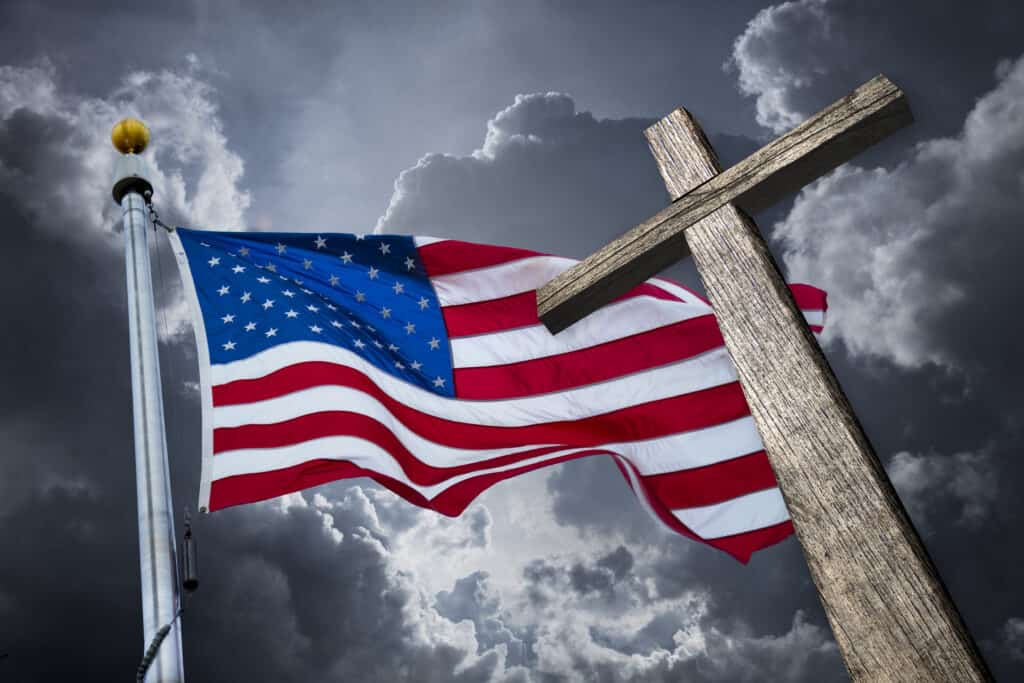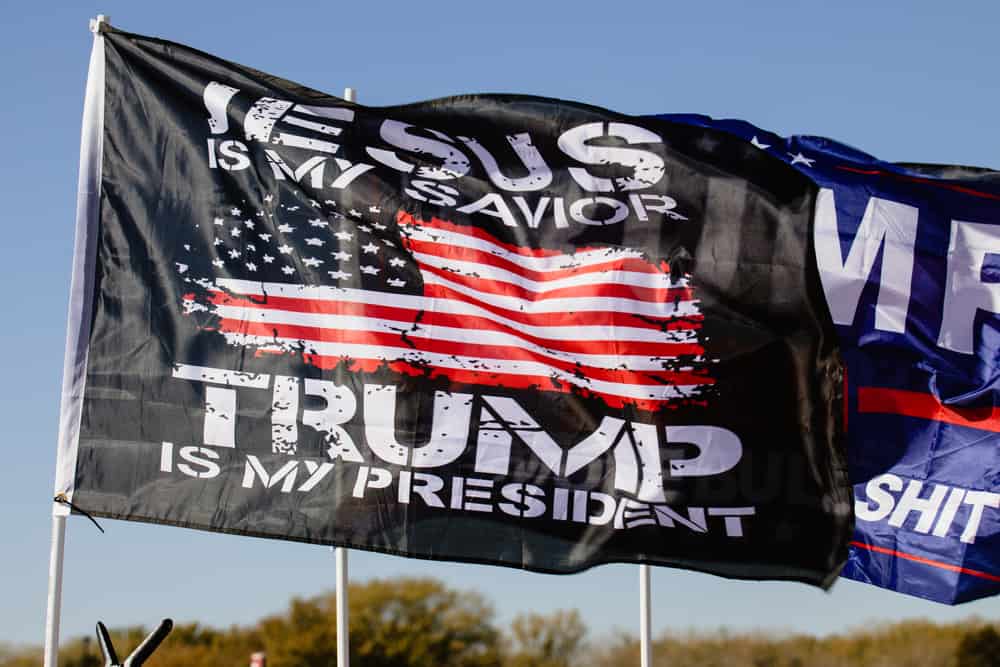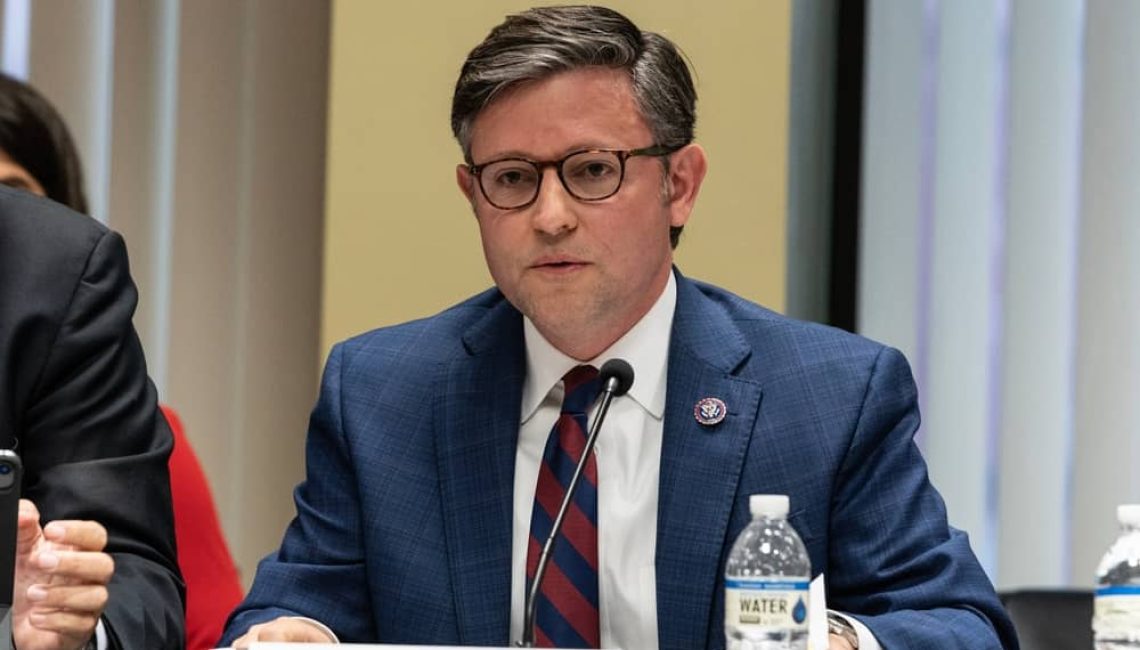It turns out that Mike Johnson, the new House Speaker, is no less a far-right MAGA bomb thrower than Jim Jordan, only he’s quiet and polite, and thus not as loathed by his House colleagues. First on the list of his impressive MAGA credentials, he took a leading role in trying to overturn the 2020 election on Trump’s behalf, including agreeing the election was “rigged,” questioning the constitutionality of state voting rules, casting doubt on the reliability of voting machines, and supporting other baseless theories that led to the January 6 Capitol insurrection. He even earned the nickname “MAGA Mike” from his Republican colleagues.
Among his other far-right achievements, he led the Republican Study Committee, the largest group of conservatives in the House, which issued a plan to erode the Affordable Care Act, Medicare, and Medicaid. He also celebrated the end of Roe v. Wade, suggested that abortion doctors be sentenced to hard labor, supported laws that criminalized gay sex, and wrote that gay marriage would “place our entire democratic system in jeopardy” as well as lead to pedophilia and people marrying their pets.
But Johnson’s far-right, far-out opinions are merely symptoms of a more fundamental problem: like many MAGAs, Mike Johnson is a Christian nationalist; in fact, he may be the most extreme Christian nationalist Speaker of the House we’ve ever had.
An Extreme Christian Nationalist is Now Second in Line to the Presidency.

Christian nationalists believe America was founded on God’s laws and the Constitution was written to reflect those laws (not true!). To their way of thinking, “freedom” means freedom to follow the law of THEIR God, not individual rights or the freedom to live as you please. No, to them, America is God’s country, a place THEIR Christian God has all the authority. According to Katherine Stewart, the author of “The Power Worshippers: Inside the Dangerous Rise of Religious Nationalism,” the movement is . . .
“a reactionary, authoritarian ideology that centers its grievances on a narrative of lost national greatness and believes in the indispensability of the “right” religion in recovering that lost greatness. This narrative always involves a narrative of unjust persecution at the hands of alien or “un-American” groups. The specific targets may shift. Some focus their fears on the “homosexual agenda’; others target Americans of color or nonwhite immigrant groups; still others identify the menace with religious minorities such as Muslims, Jews and secular “elites or perceived threats against gender hierarchy and sexual order. And of course, many take an all-of-the-above approach.”
Christian nationalists don’t want a democracy, they want a theocracy ruled by their Christian God. And since God is oftentimes unavailable (he’s probably tied up in the Middle East and Ukraine), the next best thing is an authoritarian ruler like Donald Trump, someone who will use the threat of violence to defend their worldview at any cost. Trump may have been the least Christian president in our history, but they’re convinced he will bring the nation back to the Lord, and his opponents are enemies of God. And as we’ve seen, and as Speaker Johnson’s has so clearly demonstrated, they’re willing to disregard the result of free and fair elections to keep their God in power.
Christian Nationalists Want to Take America Back to a Time that Never Existed in Order to Preserve Their Mythical Christian Nation.

Given that most Americans don’t want to live under a theocracy, thank goodness, Christian nationalists feel they are in a battle against tyranny, that even the Bible may soon by outlawed. And because they so desperately fear losing their majority status and the end of what they consider White Christian America, they subscribe to “replacement theory” and every type of cultural paranoia. They see themselves as the “real Americans” under attack from evil elites, such as globalists and socialists, who they believe are deliberately encouraging racial and religious diversity in order to challenge white Christian power. They’re threatened by everything and everybody, and like their hero, Donald Trump, they relish victimhood.
Stewart also identifies the underlying structural realities in America’s political and economic life that have enabled Christian nationalism to flourish in recent years:
“The first is the growing economic inequality that has produced spectacular fortunes for the few, while too many ordinary families struggle to get by. Leaders of the movement get much of their support from a cadre of super-wealthy individuals and extended families who are as committed to free-market fund fundamentalism as they are to reactionary religion. The donors in turn need the so-called values in order to lock down their economic agenda of low taxation for the wealthy and minimal regulation.”
As much as this humble spirit agrees that economic inequality is the primary cause of America’s great divide and the rise of MAGA populism—and has written about it countless times—there is no question but that Christian nationalism—the idea that the United States is, and should always be, a white Christian nation—is also at the core of the MAGA movement.
